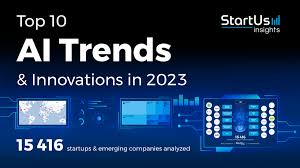AI Blog
The Role of AI in Healthcare

Artificial Intelligence (AI) is revolutionizing the healthcare industry, from patient diagnosis to personalized treatment plans. With AI-powered algorithms, healthcare professionals can analyze large volumes of medical data to identify patterns and make accurate predictions.
AI also plays a crucial role in medical imaging, assisting radiologists in detecting abnormalities such as tumors or fractures with higher accuracy and speed. Additionally, AI-driven chatbots and virtual assistants help streamline patient care by providing round-the-clock support and answering common medical queries.
The Future of AI in Education

As technology continues to evolve, AI is increasingly being integrated into educational systems to enhance learning experiences and personalize instruction. AI-powered tools such as intelligent tutoring systems and adaptive learning platforms can assess students' individual strengths and weaknesses, providing tailored lessons and feedback.
Furthermore, AI can automate administrative tasks for educators, freeing up more time for teaching and mentoring. With the potential to revolutionize traditional teaching methods, AI has the power to make education more accessible and engaging for learners of all ages and backgrounds.
Ethical Considerations in AI Development

While AI offers numerous benefits and advancements, it also raises important ethical considerations regarding privacy, bias, and accountability. As AI algorithms rely on vast amounts of data, there is a risk of perpetuating existing biases and discrimination present in the data.
Moreover, the increasing automation of tasks by AI systems raises concerns about job displacement and the future of work. It is essential for developers, policymakers, and society as a whole to address these ethical challenges and ensure that AI technologies are developed and deployed responsibly.
